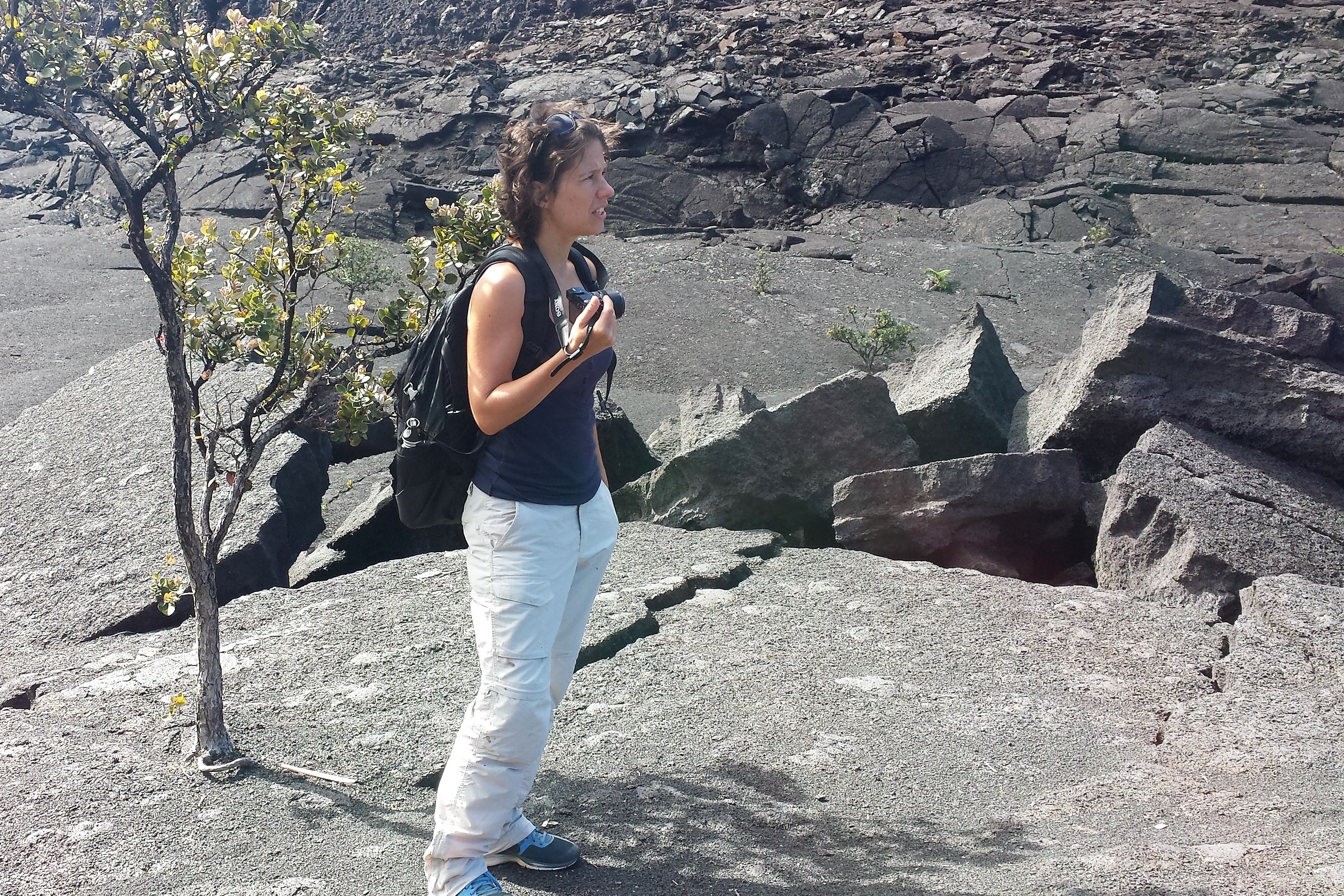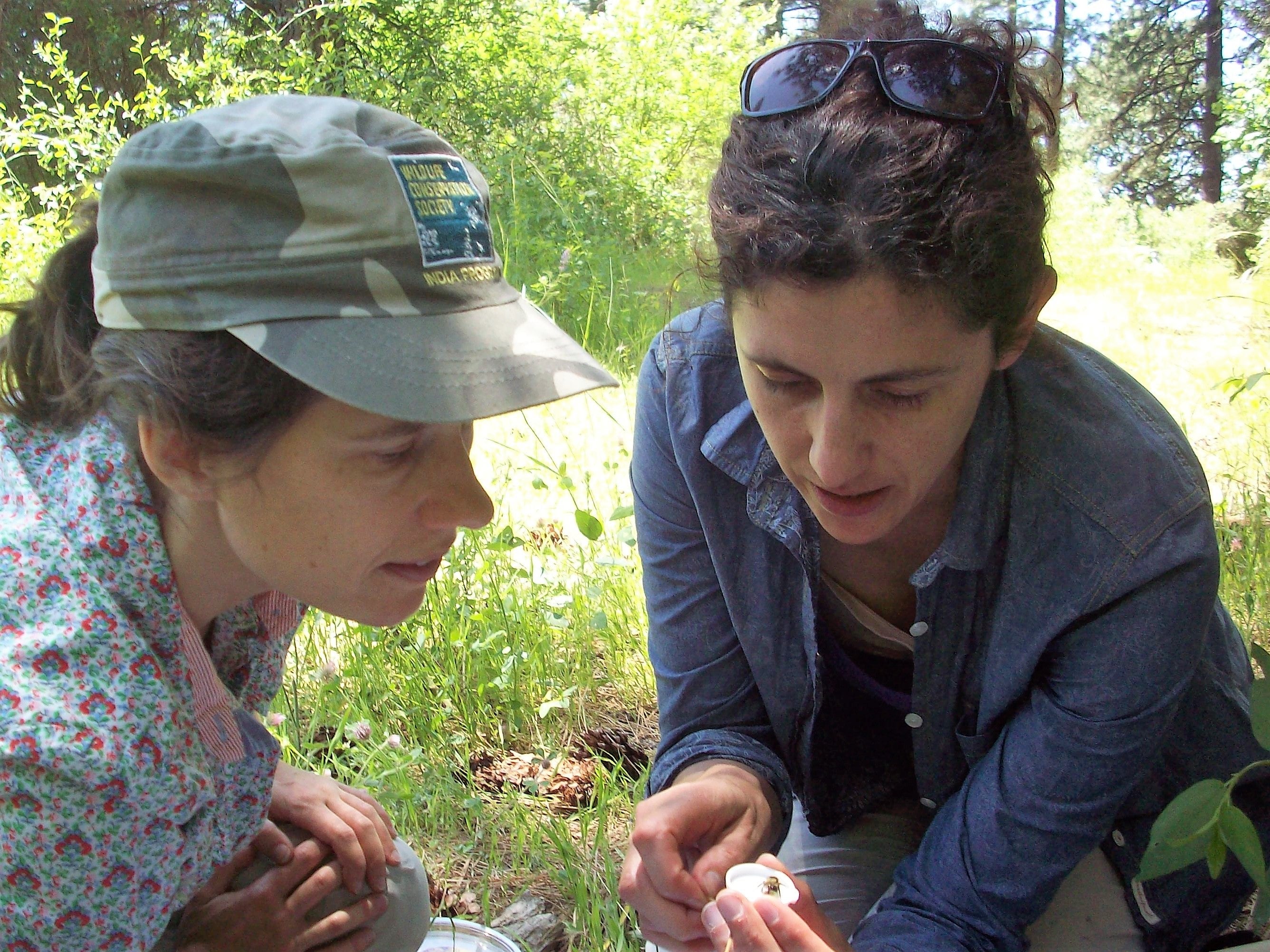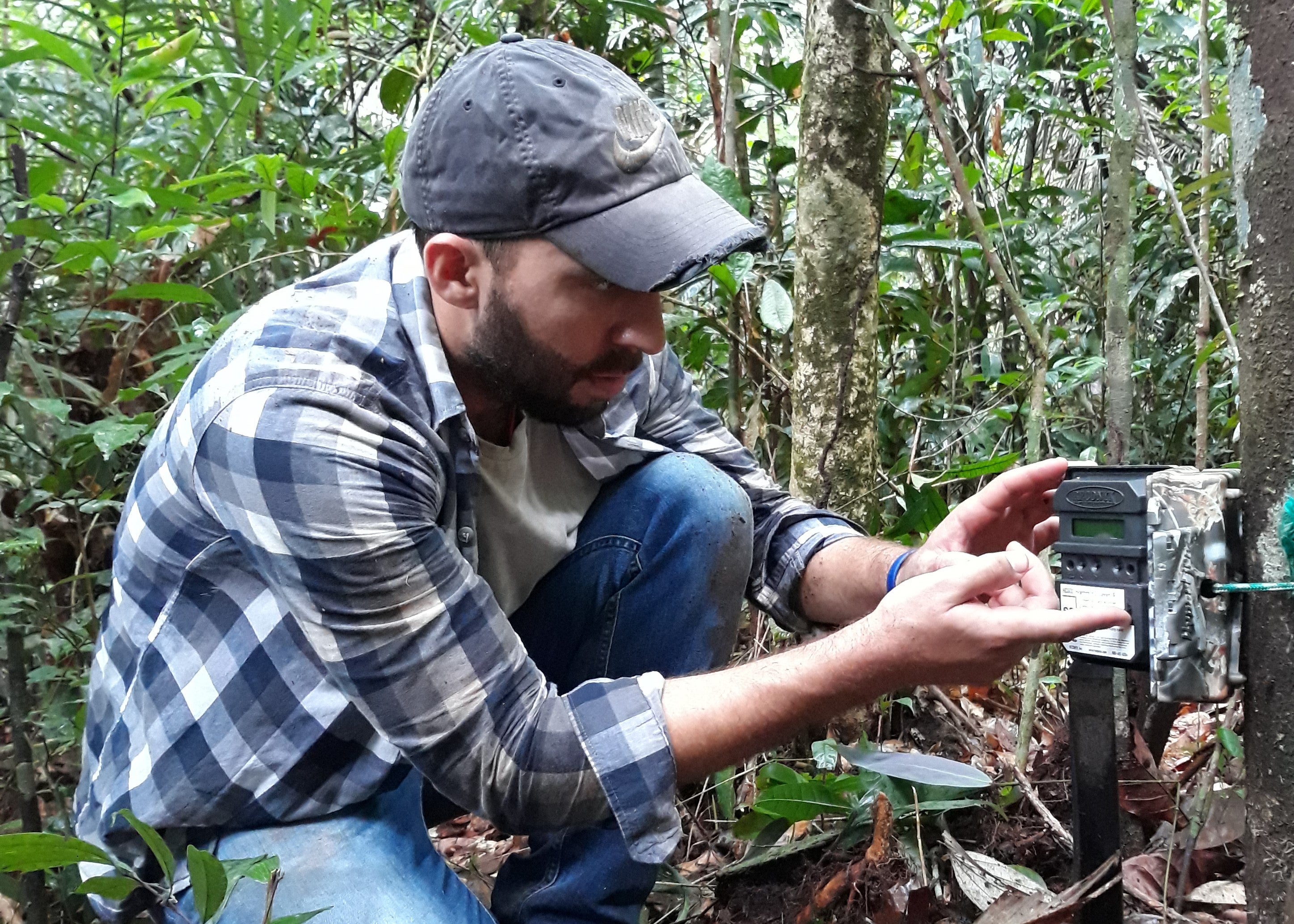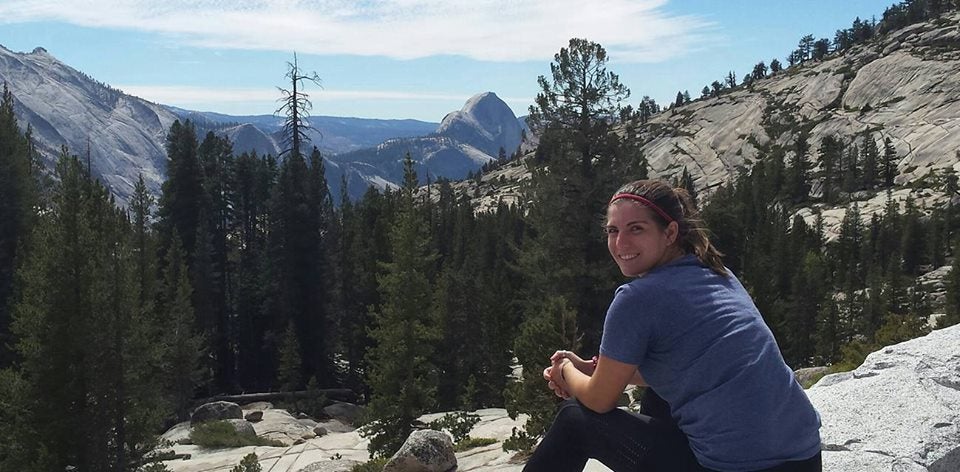 Rahel Sollmann: “I am a Quantitative Ecologist and Assistant Professor in the Department of Wildlife, Fish, and Conservation Biology at UC Davis. I develop and apply hierarchical statistical models to study wildlife populations and communities. My main interest focuses on using non-invasive survey methods such as camera-trapping to study terrestrial mammals, with the goal to contribute to their management and conservation.”
Rahel Sollmann: “I am a Quantitative Ecologist and Assistant Professor in the Department of Wildlife, Fish, and Conservation Biology at UC Davis. I develop and apply hierarchical statistical models to study wildlife populations and communities. My main interest focuses on using non-invasive survey methods such as camera-trapping to study terrestrial mammals, with the goal to contribute to their management and conservation.”
 Gina Tarbill is a Ph.D. student in the Ecology graduate group at UC Davis and an ORISE research fellow with the US Forest Service, Pacific Southwest Research Station. Gina received her M.S. in Biology at Sacramento State University in 2010 and her B.S. in Ecology and Evolutionary Biology at the University of California in Santa Cruz in 2002. Three major themes link Gina’s research interests: understanding the effects of large-scale disturbance on wildlife, understanding how mutualisms affect community structure and ecosystem function, and informing management and conservation strategies. As a Master’s student, she investigated how woodpeckers contribute to community assembly dynamics after fire by creating cavities used by other species for nesting and denning. In her Ph.D. research, Gina uses pollination networks in post-fire forests as a model system to better understand community dis/assembly, network dependence and vulnerability, and the community response to species invasions or extirpations after large-scale disturbance. Gina’s passion for increasing diversity and inclusion in STEM fields has led her to volunteer to teach science, critical thinking skills, and environmental stewardship to students from underserved elementary schools in the Sacramento area with Sierra Nevada Journeys. After completing her Ph.D., she plans to continue teaching and conducting research in community ecology. Gina enjoys birding, hiking, kayaking and traveling with her family.
Gina Tarbill is a Ph.D. student in the Ecology graduate group at UC Davis and an ORISE research fellow with the US Forest Service, Pacific Southwest Research Station. Gina received her M.S. in Biology at Sacramento State University in 2010 and her B.S. in Ecology and Evolutionary Biology at the University of California in Santa Cruz in 2002. Three major themes link Gina’s research interests: understanding the effects of large-scale disturbance on wildlife, understanding how mutualisms affect community structure and ecosystem function, and informing management and conservation strategies. As a Master’s student, she investigated how woodpeckers contribute to community assembly dynamics after fire by creating cavities used by other species for nesting and denning. In her Ph.D. research, Gina uses pollination networks in post-fire forests as a model system to better understand community dis/assembly, network dependence and vulnerability, and the community response to species invasions or extirpations after large-scale disturbance. Gina’s passion for increasing diversity and inclusion in STEM fields has led her to volunteer to teach science, critical thinking skills, and environmental stewardship to students from underserved elementary schools in the Sacramento area with Sierra Nevada Journeys. After completing her Ph.D., she plans to continue teaching and conducting research in community ecology. Gina enjoys birding, hiking, kayaking and traveling with her family.
 Daniel Rocha, Ph.D. student, Ecology Graduate Group, UC Davis: “I am intrigued and fascinated by the fact that the Amazon is one of the most biodiverse and, at the same time, most poorly studied places in the world. I am particularly interested in increasing our understanding of Amazonian species distributions, habitat associations and demography, and how these are affected by anthropogenic factors. Since 2011, I have been involved with research and conservation of large Amazonian mammals, with a focus on carnivores. My PhD project investigates how large mammals are responding to the rapid ongoing forest loss in the southern Brazilian Amazon, aiming to propose better conservation practices and land use planning.”
Daniel Rocha, Ph.D. student, Ecology Graduate Group, UC Davis: “I am intrigued and fascinated by the fact that the Amazon is one of the most biodiverse and, at the same time, most poorly studied places in the world. I am particularly interested in increasing our understanding of Amazonian species distributions, habitat associations and demography, and how these are affected by anthropogenic factors. Since 2011, I have been involved with research and conservation of large Amazonian mammals, with a focus on carnivores. My PhD project investigates how large mammals are responding to the rapid ongoing forest loss in the southern Brazilian Amazon, aiming to propose better conservation practices and land use planning.”
 Andrea Broad, PhD student in the Ecology graduate group at UC Davis, is a born and bred East Coaster, spending time in Massachusetts and Florida before heading to Virginia for college. She received her BS in Biology from George Mason University in 2016 and went on to work for the US Geological Survey in Maryland and the US Fish and Wildlife Service in North Carolina and Florida before finally making her way to California. She is primarily interested in terrestrial mammal ecology and management, and has worked with miscellaneous cats, wolves, and white-tailed deer among others. While at UC Davis, Andrea will be studying mule deer population dynamics in northern California, and aspects of her work may include population monitoring methods, predator-prey interactions, and genetic flow across the landscape.
Andrea Broad, PhD student in the Ecology graduate group at UC Davis, is a born and bred East Coaster, spending time in Massachusetts and Florida before heading to Virginia for college. She received her BS in Biology from George Mason University in 2016 and went on to work for the US Geological Survey in Maryland and the US Fish and Wildlife Service in North Carolina and Florida before finally making her way to California. She is primarily interested in terrestrial mammal ecology and management, and has worked with miscellaneous cats, wolves, and white-tailed deer among others. While at UC Davis, Andrea will be studying mule deer population dynamics in northern California, and aspects of her work may include population monitoring methods, predator-prey interactions, and genetic flow across the landscape.